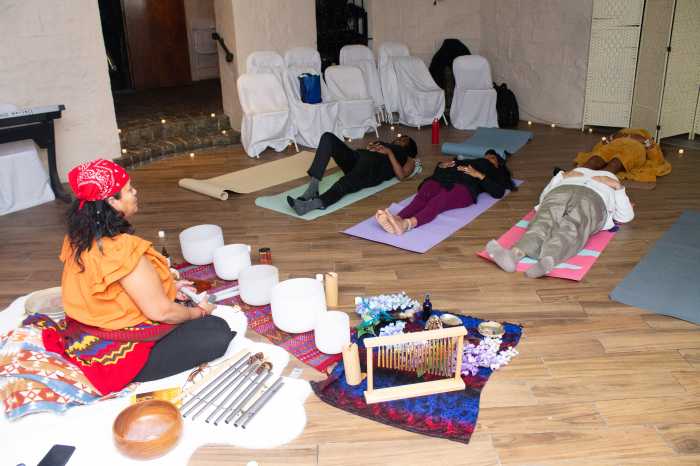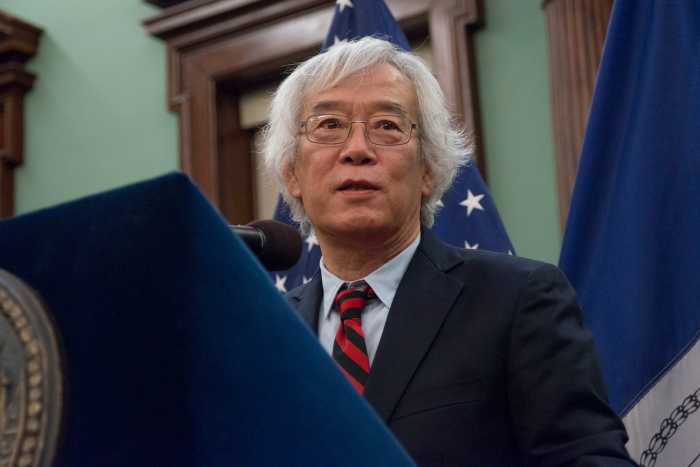Defending her proposal to require nightclubs with cabaret licenses to install surveillance cameras and ID card scanners, City Council Speaker Christine Quinn this week told The New York Times that that young adults already must show proof they are old enough upon entrance, “So, I don’t believe there is any expectation of privacy as it relates to going to a club.”
The phrase “there is no expectation of privacy” has never once been associated with what so many of us think of as essential to our lives—the vital drive to secure greater personal liberty.
In fact, privacy has been something of a code word on the far right in recent years. Antonin Scalia, Robert Bork, and their acolytes have ritualistically echoed the mantra that there is no constitutional right to privacy. And when they begin that discussion, it invariably implicates values very close to progressive people—a woman’s right to choose, the right to make one’s own medical decisions, and—yes—the rights of LGBT people.
In response to a question from Gay City News, Quinn said, “This is not an issue that is targeting any one community and it is not an issue about sexual orientation. People who make it an issue about sexual orientation, I believe, are diminishing the important struggle that still exists for civil rights for LGBT New Yorkers and are also diminishing the severity of the public safety situation we have right now.”
With all due respect for Quinn’s impressive civil rights credentials, I would submit that it is she who is diminishing a crucial principle—that of privacy.
When Justice Byron White, in 1986, penned the odious Supreme Court decision upholding Georgia’s sodomy statute, which singled out gay sex, he wrote that the claim that homosexual behavior is “‘implicit in the concept of ordered liberty’ is, at best, facetious.” It took 17 years for the Court to remove that stain, when Justice Anthony Kennedy wrote, “There are other spheres of our lives and existence, outside the home, where the State should not be a dominant presence. Freedom extends beyond spatial bounds. Liberty presumes an autonomy of self that includes freedom of thought, belief, expression, and certain intimate conduct.”
The successful argument for gay marriage in Massachusetts was based in privacy rights, or as put in legal terms, the liberty interest. The marriage plea in New Jersey, which many observers also believe will prevail, is more direct—the state Constitution’s “right to privacy” has been held to include the right to marry, and by implication, the right to marry the person of one’s choice.
Privacy is absolutely crucial. To overturn its primacy, government must present a compelling case related to a public purpose that is achievable and cannot be reached in any other way. Quinn’s drastic proposal for cameras and ID scanners falls woefully short of meeting that standard.
In the three recent high profile murders that inaugurated this debate—one of which had only a tangential link to a nightclub—the proposed security measures would not have altered the outcome or the subsequent police investigations. If they offer lessons for public policy, the primary one is that there must be strict penalties for clubs that fail to do adequate background checks on their employees and to ensure that they have no concealed weapons. One of the tragedies points up the dangers of the NYPD’s opportunistic practice of towing cars from areas where parking restrictions make sense during the work day but are merely revenue-generating traps late at night, when citizens out on the town suddenly find themselves stranded.
Quinn makes no rational—never mind compelling—case for her proposals except that she can say she is doing something. And what is the cost? Every club-goer will be photographed and their name and address will be recorded. Police are advising clubs to purchase scanners that not only check for fake IDs, but also keep a record of all the data that is read. The speaker, apparently intending to offer reassurance on this point, told Gay City News, “We will require that that information can only be used for law enforcement endeavors, it can only be used by law enforcement to prevent crimes.”
Which means, I guess, that we can breathe easy that we won’t get any Advocate solicitations in the mail after going out clubbing, but we might get a phone message from the police if we happened to be in a nightspot where a crime occurred.
And to what use might the police put this data? It has been established that in the past couple of years the NYPD shared its dossiers on hip hop artists with the Miami police. In 2004, police devoted untold hours to videotaping the hundreds of thousands of anti-war demonstrators during the Republican Convention. By this June, the taping craze led police to document a peaceful transgender rights rally and march in June. Is there anyone who can credibly argue that this does not have a chilling effect on the free speech of a marginalized community?
In the late 1990s, while a little-used sodomy statute in Minnesota was still on the books, local police examining a bar’s security camera tape for leads on a recent crime discovered footage of the bar owner and another male patron each engaging in oral sex with a woman—a full year before! Both man faced charges and one was dragged back to Minnesota from North Dakota on a warrant he had known nothing about. Given the pernicious and ongoing entrapment of gay men in the Palisades Interstate Park just across the Hudson, can anyone say with certainty that a sexual indiscretion or a furtive snort or two in a nightclub might not turn into grounds for a surprise, after-the-fact prosecution?
It’s been very easy for progressives like Quinn to denounce George W. Bush over provisions of the U.S.A. Patriot Act that allow secret subpoenas to be issued to public libraries to ferret out card holders who borrow suspicious books. Her career, in fact, has been full of such press conferences—targeting the usual suspects: Bush, Rick Santorum, Rudy Giuliani—when civil liberties and civil rights are at issue.
How is this any different?
Technology offers those in power quite nearly unfettered ability to monitor the behavior, conversations, and private, intimate moments of their citizens. What was crude in East Germany a generation ago has become far more efficient in North Korea today.
The mark of a free society based in law and in liberty is the ability to set reasonable, balanced limits on the use of that surveillance technology. This is not only about the right to go out and let loose in a nightclub on a Friday night. It is about a far more encompassing principle.
Make no mistake. There are many in this post 9/11 world who are trying to shift the line protecting liberty and privacy in a fundamental way. It would be a shame to lose Christine Quinn to the other team.
gaycitynews.com










